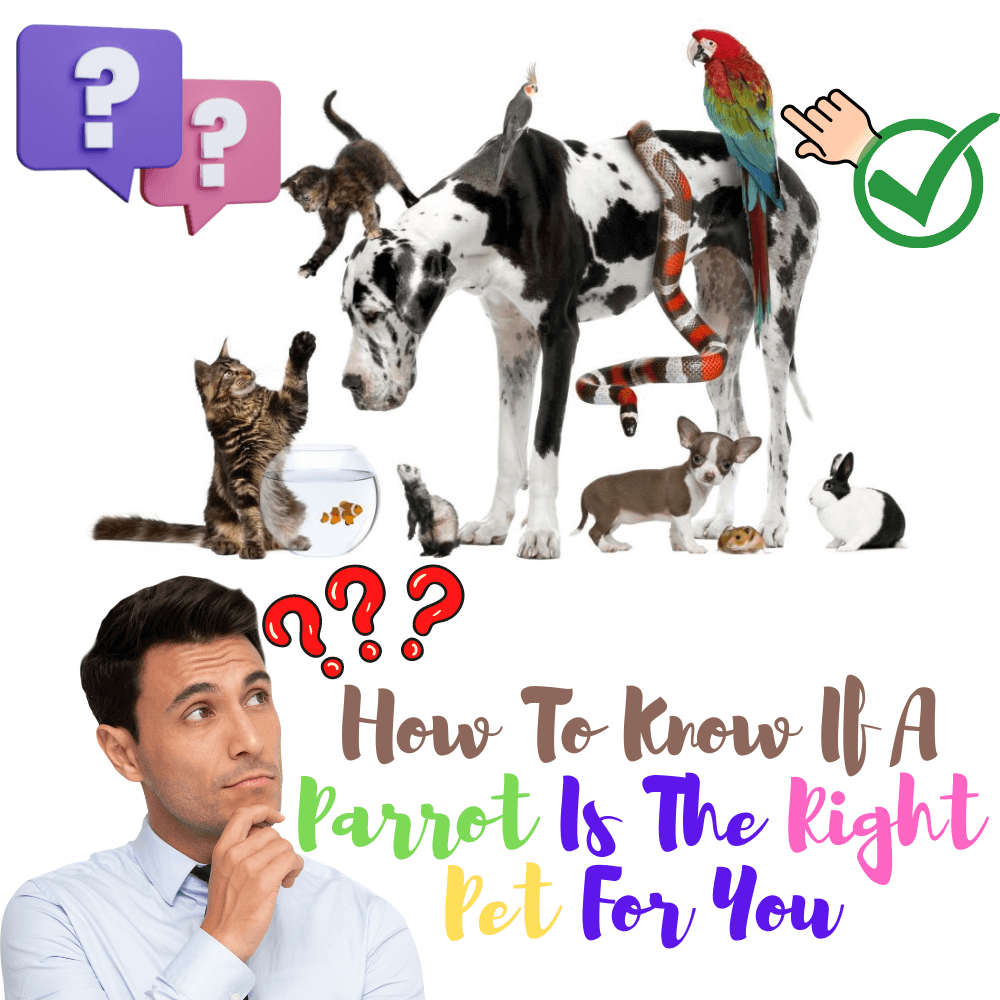
How to know if a parrot is the right pet for you? and which Parrot is Right for You? and How to Choose a Parrot?
Parrots can be very good pets, but they are not suitable for everyone. There are many who find themselves without refuge because their former holders did not know how to make the right choice. Therefore, before you decide to adopt a parrot in your home, it is important that you determine if you will be able to provide it with the attention and care required. You will also need to determine if you have sufficient financial means to keep this animal fit and happy. Knowing the commitment of time and money, as well as the emotional load required to care for a parrot will help you know if you can adopt one as a pet.
Getting to know parrots
All you need to know before getting parrots
Know the various breeds of parrots that exist
There are several types of parrots that differ in lifespan, color, size, or behavior. Understanding the diversities between these various species and knowing what to expect in terms of behavior, cost, and care required for each is a crucial point that will help you determine the right animal for you.
- Small species, such as small parakeets, lovebirds, Cockatiels, and the Parrotlet are ideal for beginners. These animals are quieter, smaller, cheaper, and have a relatively short lifespan (between 10 and 30 years).
- Medium-sized parrots, like Black-Headed and White-Belly Caique Parrot, small Conures, Rainbow lorikeets, and Great Parakeets are a little larger and noisier, cost a little more, and live a little longer (up to 40 years). They need more food, space, and interaction, so they need more time than smaller species.
- Large parrots, such as African Grey Parrot and Timneh parrots, Eclectus Parrot the Amazons Parrot, Cockatoo Parrot, and macaws Parrot are expensive, very noisy, and can live rather long (up to 50 years and older). You have to give them a lot of attention and interact with them, and they also need a lot of space.
Small Parrot
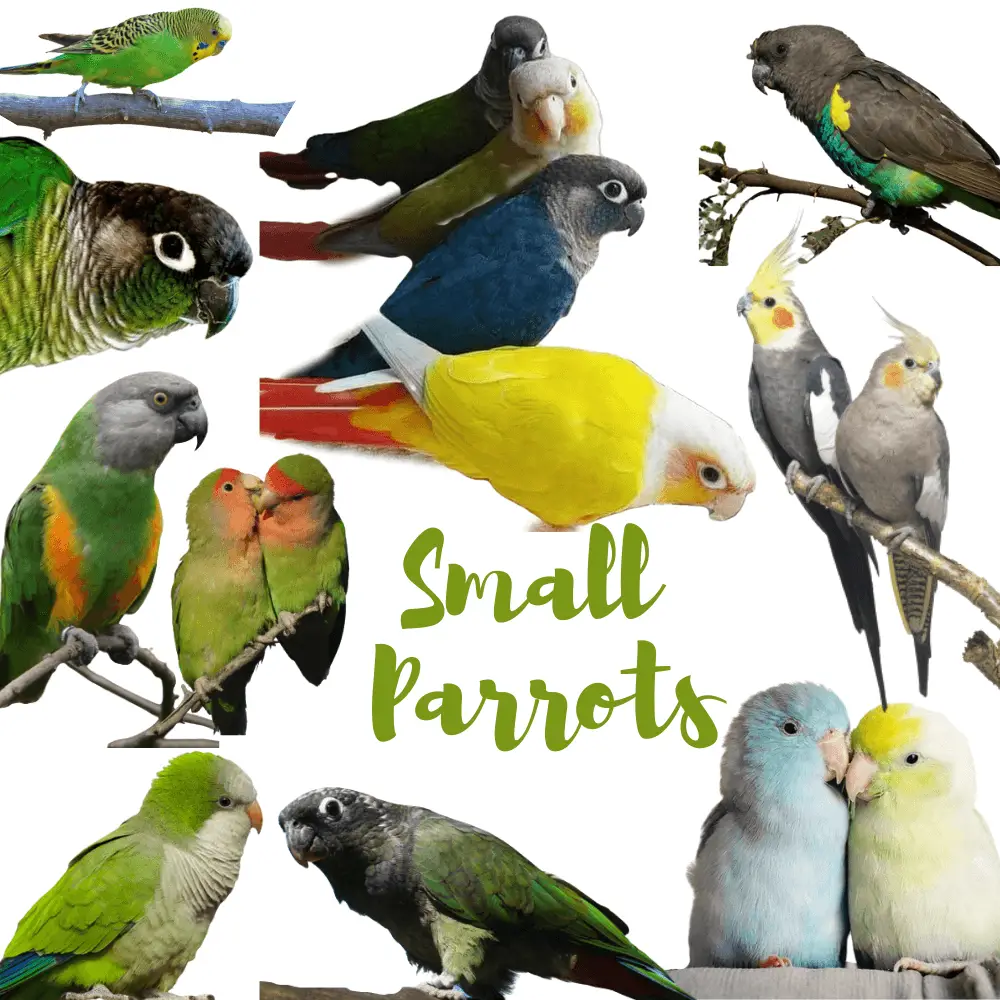
All Different Types Of Blue Parrots
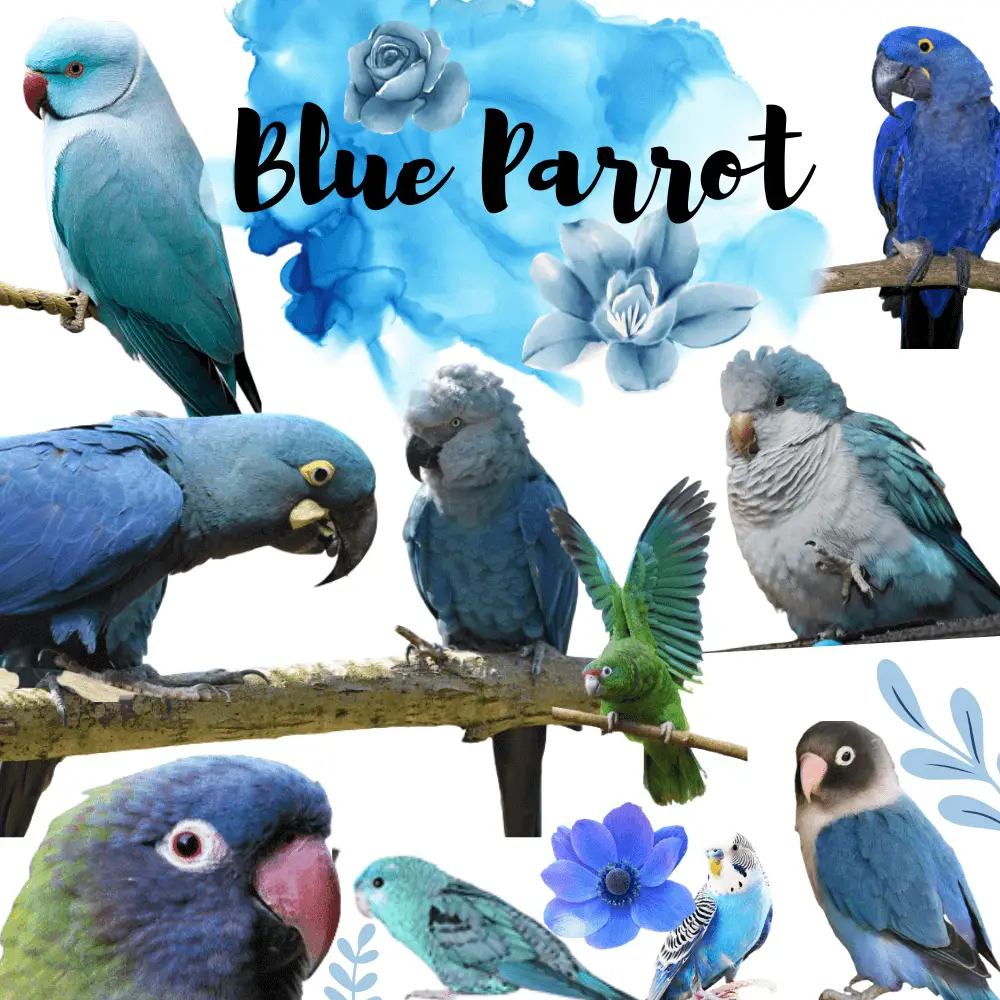
All Types of Green Parrots with Pictures
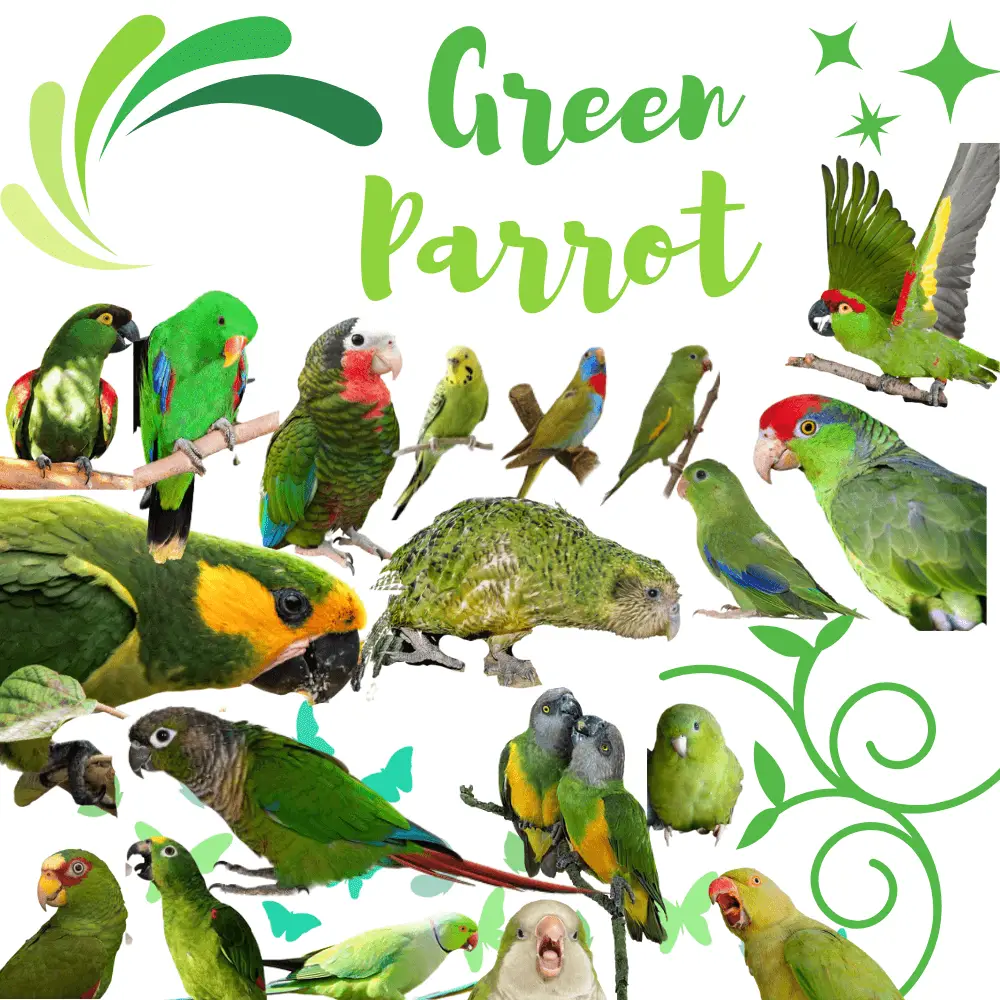
All Types of Red Parrots with Pictures
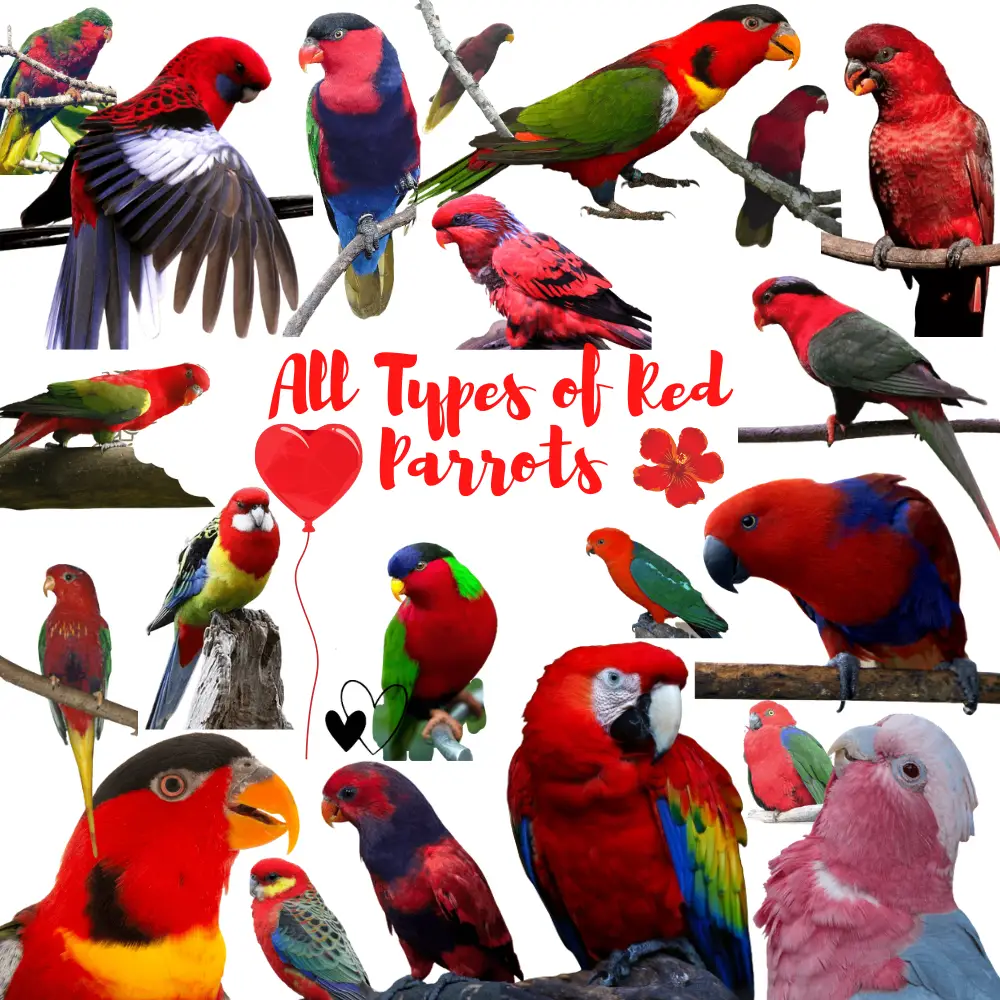
Talking parrots
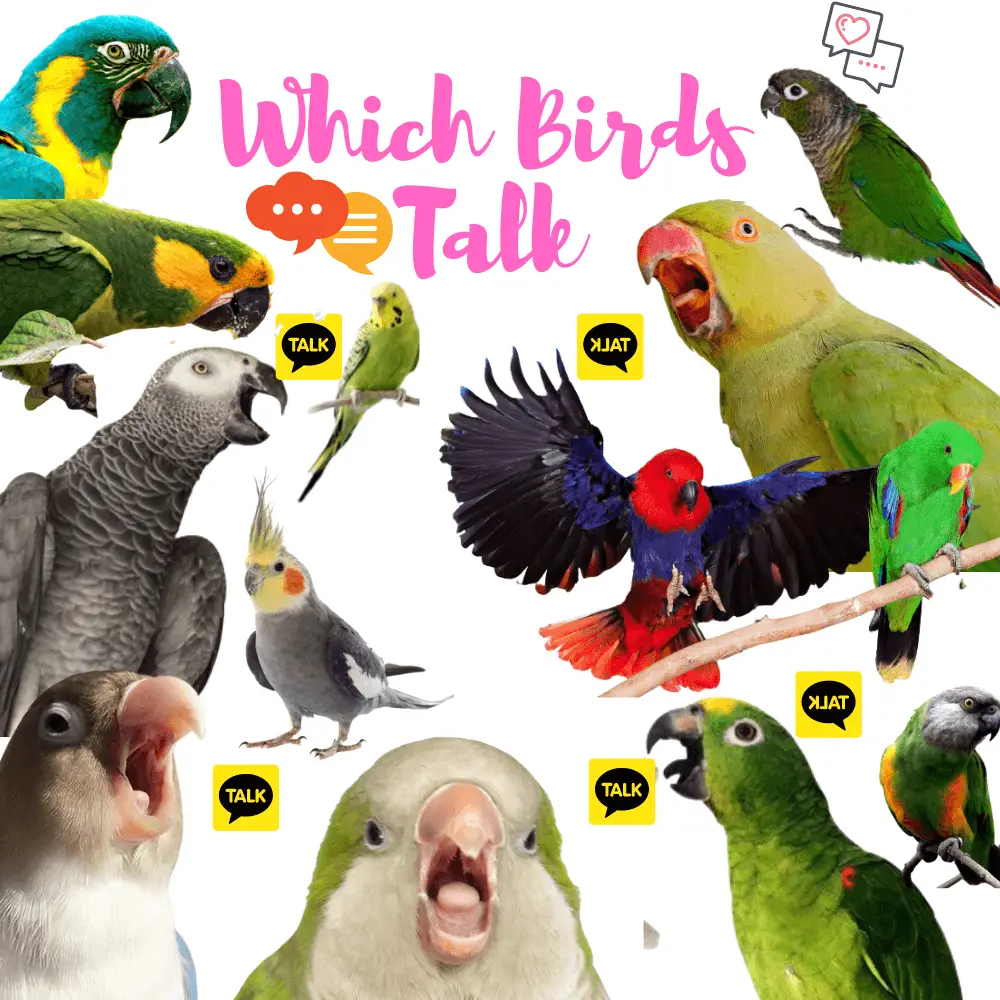
Search for parrot holders online
Look for a good breeder
You need to find a good pet store or breeder that specializes in birds. Spending time with parrots is a good way to experience the kind of experience that comes with having a pet. In addition, since each parrot has a different personality, it will also give you the opportunity to get to know some specimens. The more parrots you have the opportunity to spend time with, and the more you talk with people who are experts when it comes to these animals, the better equipped you will be to make the right choice about adopting one or not.
- Rearing centers tend to have mostly young specimens, and it should be noted that the latter behave differently from adults. They are friendlier, generally calmer, more receptive to caresses, and more able to adapt to change.
Consider the attention and care needed
Be prepared to manage a sociable and playful animal
Parrots are companions, not decorations. They need daily interaction and stimulation in addition to training. If you leave one alone all day at home, it probably won’t make a very good pet. Larger specimens require more care and training than smaller ones. Failure to provide the right care or attention for a parrot can lead to health or behavioral problems.
- Although cages are a practical accessory and represent the nest of parrots, they are not happy to be locked in them. The parrot needs a cage spaced far enough apart for it to be active in it.
- Parrots also like to be held and can learn from words or sounds. You can also be sure of one thing, they will make a lot of noise. Parrots are by nature noisy animals and will make calls several times during the day, although smaller specimens emit less loud calls. In general, these animals are not recommended for those who do not like noise or who live in apartments.
- When parrots bite, it is to indicate that they do not like what happens to them. If you don’t like the idea of walking around with a bite mark on your face or just the idea of being bitten, you may not be cut out for a parrot.
- Parrots are experts when it comes to hiding diseases. Since their defense system has evolved in the wild, they show no signs of disease unless they are extremely affected. You must therefore be a very attentive and attentive master to spot early signs of illness.
Expect to do a lot of cleaning
Know what parrots feed on
The diet of these animals is very varied, although the base consists of fresh fruits and vegetables, pellets, and whole grains.
- Making food for your parrot is the perfect way to show him your love. It is also the ideal way to offer him a more varied diet and develop his eating habits.
- Parrots can moderately eat anything humans consume, from cheese to cooked fish and meat.
Evaluate costs
All you need to know before getting a parrot
Set a budget
Calculate the initial fees
Before anything else, you will have to consider different costs.
- The price of the parrot. A parrot can cost between €20 for a wavy parakeet, and €1,600 for a macaw. Nevertheless, most spend between €700 and €1,000 on hand-fed baby parrots.
- The price of cages. These can cost you between 300 and a few thousand euros. They can indeed be very expensive, especially for larger specimens, but consider this a long-term investment. Cages and other essential accessories can be used for years. If you can’t get the cage you want for the desired parrot, consider changing the specimen.
- The price of water and bowls. You should constantly have 3 bowls in the cage: one for the usual feeding, another for water, and the last one for fresh and daily food. You can have a fourth bowl for sweets or toys if you want.
Calculate recurring charges
In addition to the initial costs, you will have to take into account what it will cost you to maintain the parrot. Expect to make regular expenses for a number of things.
- Food: fresh food and seeds will cost you between 10 and 50 € per month depending on the size of your parrot.
- Toys: A happy and healthy parrot will chew on its toys and destroy them. So you should buy several types of toys suitable for parrots, whether they are made of wood, acrylate, or from ropes. Providing the toys regularly will cost you between 40 and 80 € per month. Empty toilet paper rolls or cardboard boxes can also do the trick.
- Cleaning products: you will need to have a brush, vacuum cleaner, dust shovel, and reusable mops.
- Visits to a certified veterinarian: a medical examination will cost you between 50 and 75 € per year, while an ordinary visit when the animal is sick or needs to take treatment will cost you between 200 and 500 €. Emergencies, on the other hand, can go up to €1,000. You must be financially able to pay high fees to the veterinarian if necessary. Bird medicines are more specific and cost more than those given to other pets.
Advice
- If you finally decide that you need a parrot, and you have already chosen the species, find a good breeding center.
- There are wonderful communities of parrot lovers who will be more than happy to share with you their knowledge in the field to help you choose the animal that will suit you. You can search for discussion groups on social media and forums like Forum Perroquet, Forum Perroquet Mania, and Forum Gros-Becs.
- Consider adopting a rescued parrot to discover for a while the kind of experience that comes with having such an animal.
- Before investing a large amount of money in a bird, find out if it is endangered.
- In addition to doing research online, read too. A good book about parrots can tell you pretty much everything you need to know to breed different species.
- Remember to consider the relevant laws that apply in the area where you live.
Warnings
- Do not buy an unweaned parrot. Hand-feeding a parrot is a very specific skill and you could hurt or kill the animal if you don’t do it right. The parrot will not be more related to you because you have fed it personally. Therefore, unless you are an expert, wait until the animal is weaned before bringing it home.
- Never collect a parrot from a bad breeding center! By taking a parrot from a poor-quality pet store you financially reward mediocrity, so those responsible will continue to buy and abuse the animals. Report such centers to the appropriate authorities and do not make purchases there.
- Do not take a parrot that has behavioral problems, unless you have taken courses or done training on how to deal specifically with these kinds of problems. These dysfunctions are observed in collected animals or in old parrots that change residence
Starter and Beginner Birds: How to Decide Which Parrot is Right For You!
SOURCE:BirdNerdSophie




















